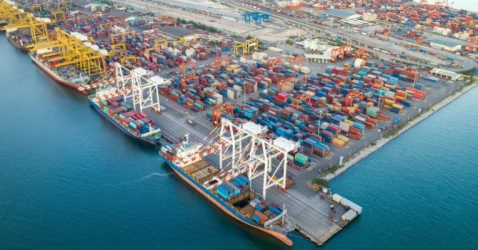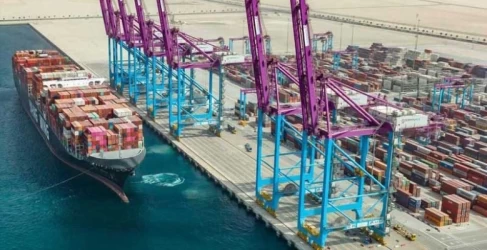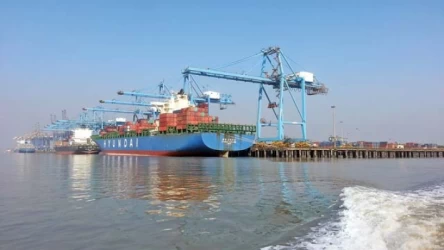Guide to Trading with France, Maritime Shipping
France, as one of the world's largest economies and a key member of the European Union, offers significant opportunities for international trade. Its strategic location, robust infrastructure, and diverse economy make it an ideal destination for businesses looking to expand their global reach. This article provides a detailed guide to trading with France, with a special focus on maritime shipping, which plays a vital role in international logistics.
1. Advantages of Trading with France
a) Strong and Diverse Economy
France has a diversified and highly developed economy, making it an attractive destination for international trade. Key industries include aerospace, automotive, agriculture, fashion, and pharmaceuticals. The French market is one of the largest consumer markets in Europe, offering numerous business opportunities.
b) Trade Agreements and Strategic Location
As a member of the European Union, France enjoys numerous trade agreements that reduce tariffs and streamline trade procedures. Its location, with access to major European markets, provides businesses with easy access to neighboring countries. Major ports like Marseille, Le Havre, and Dunkirk are important gateways for goods entering and leaving Europe.
c) Advanced Transportation Infrastructure
France's advanced infrastructure includes an extensive network of roads, railways, and ports, ensuring efficient transportation of goods. This infrastructure, combined with France’s global connectivity, facilitates quick and cost-effective trade across Europe and other continents.
2. Steps to Conducting Trade with France
a) Market Research and Analysis
Before entering the French market, conducting thorough market research is essential. Understanding consumer preferences, analyzing competitors, and identifying opportunities in the French market will help businesses develop effective strategies for market entry.
Market Research Methods:
- Utilizing government data and statistics
- Analyzing consumer behavior and market trends
- Reviewing competitors and similar products in the market
b) Selecting the Right Products
After conducting market research, selecting products that meet French market demand is critical. French consumers value high-quality, environmentally friendly, and well-designed products. Complying with French and EU standards is necessary to ensure a smooth market entry.
c) Obtaining Necessary Licenses and Certifications
To trade with France, businesses need to secure the necessary licenses and certifications. Certain products, such as food and pharmaceuticals, require specific permits. Additionally, compliance with health, safety, and environmental regulations is mandatory.
d) Negotiating Contracts
After selecting the products and securing the necessary permits, businesses need to negotiate contracts with French partners. Contracts should clearly outline payment terms, delivery schedules, guarantees, and insurance.
3. Maritime Shipping to France
a) Choosing the Right Shipping Method
Maritime shipping is one of the most efficient ways to transport goods to France, particularly for bulk or heavy cargo. Businesses can choose between full container load (FCL) and less than container load (LCL) shipping, depending on the volume of goods.
Types of Containers:
- Full Container Load (FCL): When your shipment fills an entire container.
- Less Than Container Load (LCL): For smaller shipments, sharing a container with other shippers.
b) Maritime Shipping Process
- Loading Goods: Once the goods are packed, they are transported to the port of origin. Depending on the terms of the contract (e.g., FOB or FCA), the responsibility for loading may lie with the exporter or the shipping company.
- International Shipping: The duration of sea transport depends on the distance and ocean conditions. Typically, shipping from major ports worldwide to France takes between 10 to 30 days.
- Customs Clearance: Once goods arrive at the destination port, they must go through customs clearance, which involves submitting required documents, paying duties, and ensuring compliance with French standards.
c) Costs Associated with Maritime Shipping
Several factors contribute to the cost of maritime shipping, including:
- Loading and Unloading Fees: Costs associated with loading goods onto the ship and unloading them at the destination.
- Freight Charges: The cost of transporting goods by sea.
- Marine Insurance: Insurance coverage to protect goods against potential risks such as damage or theft during transit.
- Customs Duties: Taxes and tariffs imposed by French customs authorities based on the type and value of goods.
d) Marine Insurance
Marine insurance is a vital aspect of maritime shipping. It covers potential risks such as damage, theft, or loss of goods while in transit. Ensuring your goods are adequately insured before shipping can save significant losses in case of any mishaps.
4. French Customs and Import Regulations
To successfully import goods into France, businesses must adhere to the country's customs regulations. The process involves the following steps:
- Documentation: Essential documents include the commercial invoice, packing list, certificate of origin, and shipping documents.
- Payment of Duties and Taxes: Goods entering France are subject to value-added tax (TVA) and import duties, which are calculated based on the type and value of the products.
- Inspection of Goods: Some products may require inspection to ensure they comply with French and EU safety and environmental standards.
5. Key Considerations and Challenges in Trading with France
a) Understanding French Trade Regulations
Familiarity with French trade regulations is crucial for successful business operations. France has strict standards for quality, safety, and environmental compliance, and adherence to these regulations is necessary to avoid delays and penalties.
b) Building Strong Relationships with French Partners
Building and maintaining strong relationships with French trade partners is key to long-term success. Open communication, mutual trust, and respect for cultural differences contribute to successful business relationships in France.
c) Cultural and Language Differences
Though France is a multicultural country, understanding its culture and language can enhance business interactions. French companies often prioritize personal relationships and trust in business dealings. Understanding the nuances of French communication and etiquette is beneficial in negotiations and collaborations.
6. Trade Agreements and Tariffs
France, as part of the European Union, benefits from numerous trade agreements with countries around the world. This includes preferential tariffs and streamlined customs processes, making it easier and more cost-effective to trade. Depending on your country of origin, you may be able to take advantage of these agreements when exporting to France.
Conclusion
Trading with France offers significant opportunities, thanks to its strong economy, advanced infrastructure, and strategic location. However, navigating the complexities of customs, regulations, and maritime shipping requires careful planning and compliance with French and EU laws. By following the steps outlined in this guide, businesses can successfully enter the French market, leveraging maritime shipping for cost-effective and efficient transportation of goods.
If you have any specific questions or need further assistance, feel free to ask!










